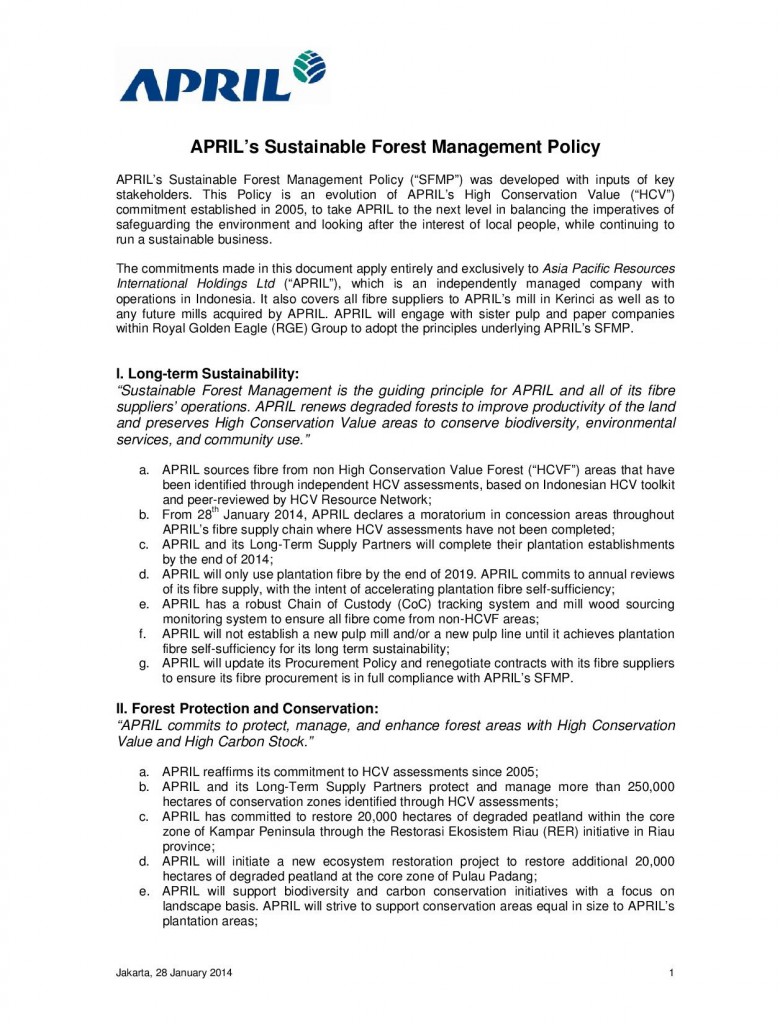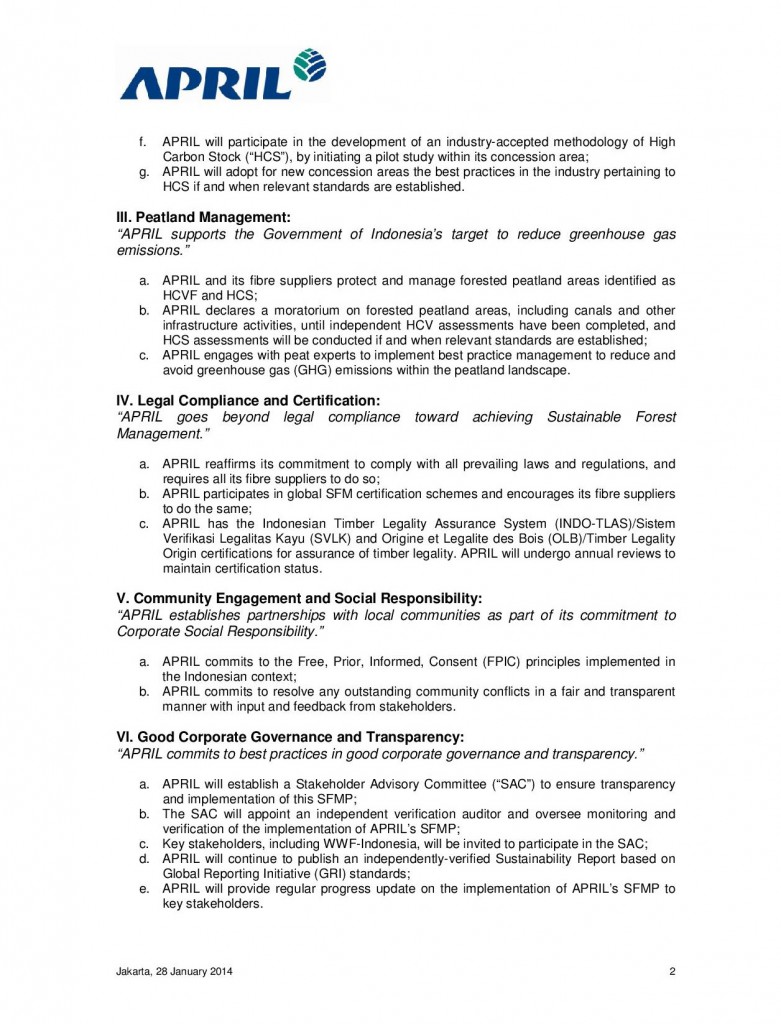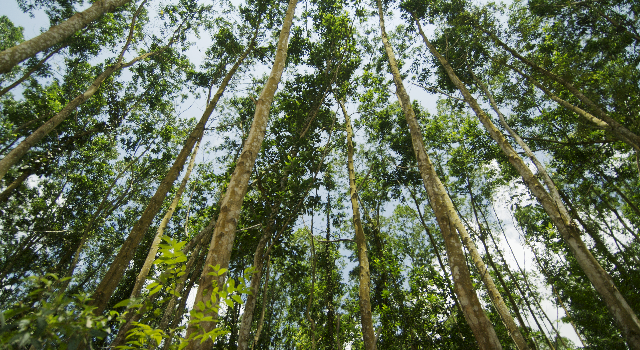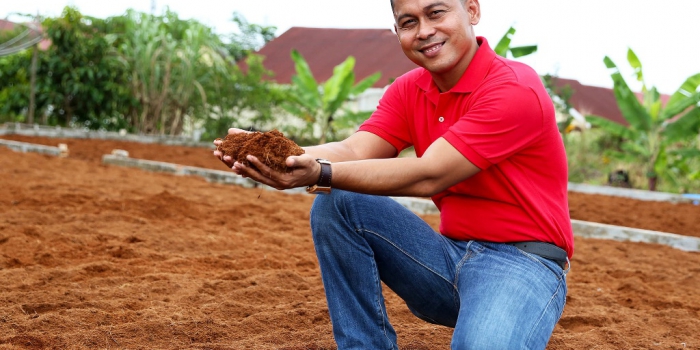APRIL announced a new policy direction on Sustainable Forest Management to boost reforestation efforts and sustainable wood sourcing.
“Growth is important but sustainability is also important. We are a long-time player,” APRIL president Praveen Singhavi told The Jakarta Post on Monday. (See media coverage – Jakarta Post)

Sustainable Forest Management Policy – Part 1

Sustainable Forest Management Policy – Part 2
The Sustainable Forest Management Policy
The Sustainable Forest Management Policy (SFMP) includes no establishment of new plantations by December 2014 and a moratorium on plantation development in forests considered to have a high conservation value (HCV).
APRIL, Asia’s second largest pulp and paper manufacturer, will harvest mill wood exclusively from its renewable plantations by 2019; double the size of its forest restoration program to 40,000 hectares; and to conserve forests equal to the size of its plantations.
APRIL will stop buying materials from suppliers which source products from HCV forests – those rich in environmental, socioeconomic biodiversity or landscape value – as part of its Sustainable Forest Management Policy.
“We will not expand in new pulp mills or new pulp plants as that takes [wood] fiber, but we can absolutely expand into the paper business as it is not dependent on fiber but on pulp,” Singhavi said, adding 150,000 trees would be planted every year.
APRIL has around 460,000 hectares of planted areas from about 960,000 hectares of plantations. Its products are marketed in over 75 countries across the world.
“There’s a lot of skepticism in the outside world,” he added, while announcing the appointment of an independent Committee to oversee the progress of the new policies.
The Stakeholder Advisory Committee (SAC) comprises five forest and social experts led by Joseph Lawson, a veteran of 34 years in the forestry industry, including Al Azhar, a community leader in Riau and chief executive of the Malay Custom Institution of Riau; James Griffiths of the World Business Council for Sustainable Development (WBCSD); Jeff Sayer, development practice professor at Australia’s James Cook University; and Budi Wardhana, World Wildlife Fund for Nature (WWF) policy, sustainability and transformation director.
“Our primary goal is to help implement the sustainable forest policy APRIL has come up with to monitor our progress on being transparent, to communicate that progress and to verify that progress,” Lawson said.








